
In this day and age, when footballers can earn hundreds of thousands of pounds a week for simply kicking a ball around a field, it can be easy to assume that becoming a footballer is an easy way to make a fortune.
Yet the amount of money paid to players at clubs in the Premier League can differ wildly depending on which teams they play for and how important they are for the team, let alone the difference in wages between a top-flight player and one in the bottom division of the Football League. That’s to say nothing of the other ways that footballers can make themselves a pretty penny or two that have nothing to do with the actual playing of the game.
That’s why we thought we’d have a little look at both the amount of money a player can earn for doing their job as well as the other ways that footballers are able to boost their bank accounts. Given that the average yearly wage in the UK for men in 2017 was £30,000, there has to be an acceptance when discussing these issues that the money floating around football is utterly ludicrous.
Even so, once you’ve become accustomed to a certain way of living you have to do what you can to keep yourself and your family taken care of, which is why even players on outrageous contracts will find other ways of earning a profit.
How Much Does A Player Make Playing For A Club?
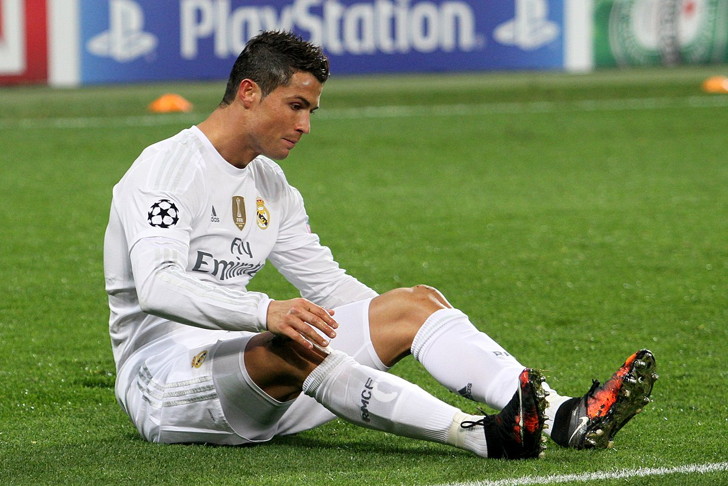
The most obvious way that a player can earn themselves a wage is by playing football professionally. Just as banks, organisations and even charities have to pay a decent wage in order to attract the best talent, so too do football clubs need to ensure that they’re able to give players good money if they want to bring them in. You might believe that paying someone £100,000 or more every single week is beyond the pale and it would be difficult for a right minded person to argue with you.
There are several things you need to remember, however. For starters, the more a player earns the more they have to pay in tax. Players also have agents that will take a cut of their wage, just as actors or entertainers do. They also have entourages who help to deal with their daily life.
Another factor that has to be taken into account for footballers is their relatively short shelf-life as players. By the age of 35 they’ll almost certainly be thinking of hanging up their boots and not all players will either way or be able to go into coaching or management. Similarly punditry isn’t for everyone, with some players being better at public speaking than others.
None of that justifies outrageous wages, of course, but it explains why players do what they can to earn as much as they can whilst they can. A freak injury for a 25-year-old at the height of their career might see them never play again, so they will constantly be thinking about the future. Their wage doesn’t just take into account playing ninety minutes every few days, either. It covers their training time, travelling to different parts of the country if not the world and also media commitments forced on them by the club.
Footballers who are good enough to make it into their national squads don’t get paid for the matches or for training that they do in preparation for international tournaments. They often do get paid a prize if the national team wins the tournament that they enter, though. This will usually be small change to a footballer, but if we’re writing an article about how they earn their money then it’s important to point this out.
The Football Player Pay Scale
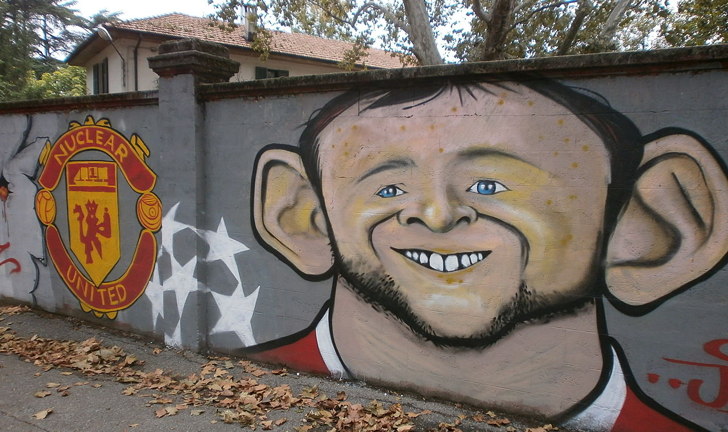
When Zlatan Ibrahimovic played for the Red Devils he was paid over £365,000 per week, which amounts to around £19 million per year. Whilst that’s obviously a lot of money, it is nothing compared to the roughly £600,000 per week that Formula 1 champion Lewis Hamilton was reportedly paid during the same period.
Compare contrast the amount Ibrahimovic earned with the £15,000 per week that Callum Wilson was paid at Bournemouth back in 2016, according to an article in the Daily Star. Wilson was arguably Bournemouth’s top striker at the time, but he was being paid significantly less than the £55,000 per week Juan Iturbe was earning at the same club during the same period. From £365,000+ for one player at one club in the Premier League down to around £15,000 for a different player at another club in the same league, you can see how vastly differently the pay is for players in the top-flight.
Once you start moving down the divisions that changes even further. Back in the 2014-2015 season, players in the Premier League were paid an average of £1.7 million per year. That was more than five times the yearly average of £324,250 paid to Championship players during the same campaign, which was more than four times the average of £69,500 paid to League One players. As you’d expect, League Two players were paid the least at £40,350 on average; though even that is well above the average wage in the UK mentioned before.
Whilst the money in football is clearly over-the-top as we’ve mentioned already, the players would no doubt argue that they are the best at what they do. Businesses would pay the going rate for the best salesmen or CEOs, so why shouldn’t football clubs? There’s also an argument that footballers are who the crowd turn up to watch and a club like Tottenham Hotspur had enough room at White Hart Lane for 36,284 people to attend each home game. With an average ticket price of £59 per game, that meant Spurs earned over £2.1 million every time they played. If the supporters are showing up to see the footballers, shouldn’t they get the lion’s share of that money?
Sacrifices

Another thing worth a brief mention is the sacrifices that footballers at the top of the game have to make.
More often than not they are not able to lead normal lives, going to the cinema with friends or heading to the shops. They cannot simply wander around their local town or city as ordinary people do, such is the likelihood that they’ll be mobbed by the people who recognise them.
Footballers have to live secluded lives, living in properties that are more akin to compounds than homes. If those that find out where they live don’t invade their privacy then the press certainly will, leading many players to erect large fences around their properties and having security cameras placed every few feet.
They almost certainly wouldn’t ask for sympathy, but there are definitely sacrifices that need to be made in exchange for the extraordinary amounts of money that they’re paid.
Sponsorship
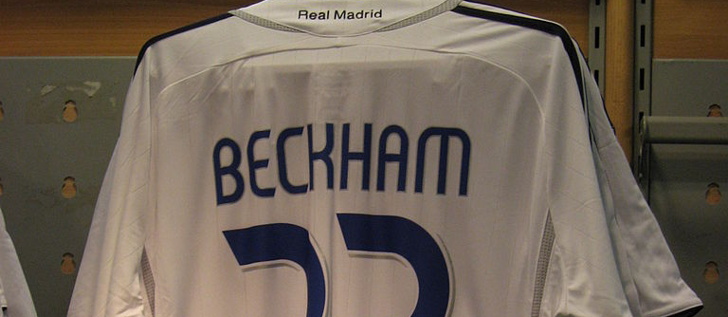
David Beckham, one of the most heavily sponsored players Back to how they earn money and sponsorship plays a big part, especially for the most sought after players.
They can make a fortune simply for agreeing to play in football boots made by a given company, such as the million dollars per year Nike agreed to pay the Brazilian player Neymar for doing just that. Even that paled in comparison to the $11 million plus that Adidas agreed to pay David Beckham back when he was still playing the game.
There is barely an area of a player’s life that they won’t be able to earn sponsorship for, should they wish to. From driving a particular make of car through to being seen drinking a given sports drink, there are hundreds of thousands of pounds to be made if companies believe that a player’s profile is good enough to encourage supporters to follow in their footsteps.
The biggest sports companies in the world, such as Nike, Puma and Adidas, will battle it out to bring the biggest names in the game onto their roster in order to boost sales, so it’s fair to say it really is big business.
Autobiographies
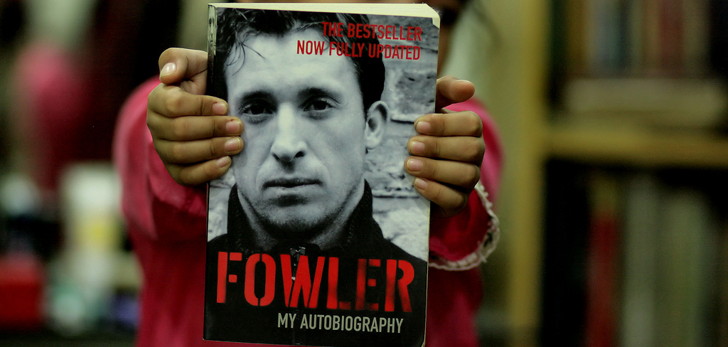
As a player’s career starts to come to an end they might consider whether or not they’ve got a tale to tell that is worth reading.
For players like Steven Gerrard or Cristiano Ronaldo this might be because they’ve won so much during their time playing football that they would like to tell supporters all about it. For others it could be because they’ve spent their careers in the lower leagues and they feel that this is just as interesting as those at the top of the game.
Books like Ian Wright’s “A Life in Football”, Johan Cruyff’s “My Turn” and Joey Barton’s “No Nonsense” often sit near the top of Amazon’s list of bestselling autobiographies, for example, whilst David Beckham’s My Side is the tenth highest grossing autobiography since 2001 according to an article in the Guardian.
It’s unlikely to make players as much money as they’d have earned in a week as a player, but it’s still something that can bring a wage in if they feel that it’s needed.
Investments

During his time playing for Manchester City, the club’s supporters used to sing “We all live in a Robbie Fowler house” to the former Liverpool striker. That’s because he had become something of a property mogul, using the wages he earned as a player to invest in properties that would keep him earning money long after he had hung up his boots.
Back in 2013 the estimate of his property empire estimated it at £31 million. That’s not bad for a lad from Huyton that the Liverpool supporters used to call God.
Not every player will know what it takes to invest in property, of course, and some who had actually ended up losing their money. Yet they can afford to turn to financial advisors and the like who will help them invest their fortune in as reliable a way as possible.
That avenue is open to any professional footballer, though obviously those with the most money will be the ones who benefit from it all most clearly.
Coaching & Management
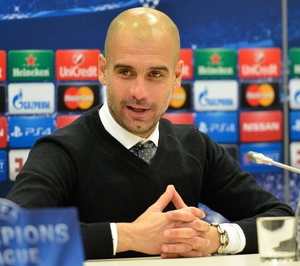
One of the most obvious paths for footballers to take once their career as a player has come to an end is to head into coaching and management. Most of the top managers in world football used to be players, from Rafa Benitez to Alex Ferguson, Fabio Capello to Steve Bruce.
The very best managers can earn a decent amount of money, too. Pep Guardiola agreed a £15 million a year contract with Manchester City when he signed up as their manager in 2016, whilst Zinedine Zidane earned £8 million per year as Real Madrid’s manager.
The problem with this route, of course, is that it isn’t for everyone. Football management takes a particular skillset, from being tactically astute through to being good at interacting and dealing with people. Whether a player decides to go into management or coaching probably has more to do with their passion for their game than their desire to earn money.
Still, it is a way to remain in the sport once they’re no longer able to keep playing. If they’re not very good then they’ll likely still be able to earn money by bouncing from club to club, but if they are good then their wage will likely soar as they become in demand.
Punditry

One of the final ways that a player might look to earn a wage after they’ve hung up their boots is by going into punditry. The desire to watch, read and talk about football doesn’t show any signs of abating any time soon, so it’s no surprise that more and more companies are being formed to show live football or have it commentated upon. The more that television deals are struck to allow the likes of the Premier League to be shown in the most far flung countries in the world, the more demand there’ll be for knowledgeable people to talk about it.
In the UK alone there is the likes of Sky Sports, BT Sport, BBC Radio 5 live and TalkSport. Go further abroad and you’ll discover channels such as NBC Sports Network in America, beIN Sport in the Middle East and ESPN in Latin America. In fact, at the time of writing there are around one hundred broadcasters that cover Premier League football alone, all of which need former players that are willing to talk in critical terms of the game. It’s not for everyone, but for those who can do it it’s a decent way of earning some money.
Conclusion
As with every walk of life, there are countless different ways that players will make money depending on their place in the food chain. We’ve likely missed more than a couple of obvious things, but you’ll no doubt get the idea of the sort of things players can do from the above list. It’s not exhaustive, so if we’ve forgotten something then we apologise. Get in touch and we might add it into the list for £300,000 a week…
